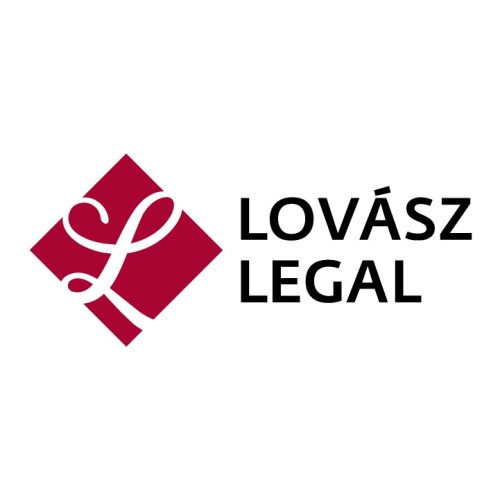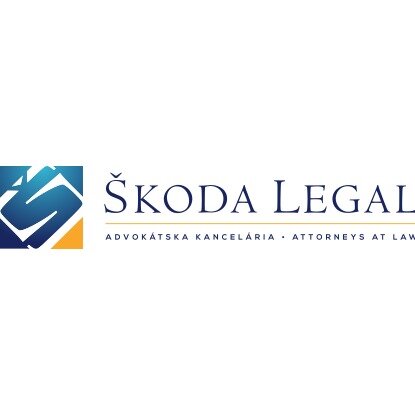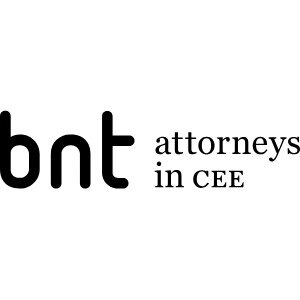Best International Trade Law Lawyers in Bratislava
Share your needs with us, get contacted by law firms.
Free. Takes 2 min.
List of the best lawyers in Bratislava, Slovakia
About International Trade Law in Bratislava, Slovakia
International Trade Law in Bratislava, Slovakia, encompasses the legal framework that regulates the exchange of goods and services across international borders. Given Slovakia's strategic location in the heart of Europe and its membership in the European Union, Bratislava serves as a vital hub for international trade activities. The laws governing international trade in Slovakia are heavily influenced by EU regulations, international treaties, and Slovak national laws aimed at ensuring compliance with global trade standards, protecting domestic industries, and promoting free trade. Lawyers specializing in this field play a crucial role in helping businesses navigate the complexities of international deals, customs regulations, tariffs, and trade agreements.
Why You May Need a Lawyer
There are several scenarios where legal assistance in International Trade Law could be invaluable:
- Customs and Tariff Issues: Understanding and complying with customs duties and import/export tariffs specific to Slovakia and the EU.
- Contract Negotiations: Drafting, reviewing, and negotiating international sales contracts to ensure they meet legal requirements and protect your interests.
- Trade Disputes: Resolving conflicts related to international transactions, including breaches of contract or claims of unfair trade practices.
- Intellectual Property Protection: Ensuring intellectual property rights are respected and enforced across borders.
- Export Controls and Sanctions: Navigating the complexities of export control laws and international sanctions that may affect business operations.
- Regulatory Compliance: Adhering to the regulatory requirements for particular industries or types of products.
Local Laws Overview
Some key aspects of local laws relevant to International Trade Law in Bratislava include:
- EU Trade Regulations: As an EU member, Slovakia adheres to EU-wide trade policies, cooperative agreements, and customs union rules.
- Slovak Commercial Code: Governs commercial contracts, corporate transactions, and the legal obligations of trading entities.
- Customs Act: Regulates the import/export procedures in Slovakia, ensuring the proper declaration and payment of duties.
- Sanctions Laws: Implement EU-mandated sanctions in terms of trade with certain countries or entities.
- Consumer Protection Laws: Protect consumers in transactions, applicable even in cross-border sales.
Frequently Asked Questions
What is the role of an international trade lawyer?
An international trade lawyer provides expert advice and representation in matters related to cross-border trade, including compliance with laws, dispute resolution, and contract negotiations.
Do I need a lawyer to deal with customs issues in Slovakia?
While it is not mandatory, having a lawyer can help navigate complex customs processes, ensuring compliance and minimizing potential penalties.
How does EU membership affect Slovakia's trade laws?
EU membership means Slovakia is part of a larger single market and customs union, which influences its trade laws and practices with streamlined processes and uniform regulations across member states.
What are some common trade barriers in Slovakia?
Typical trade barriers may include import/export restrictions, tariffs, customs procedures, and regulatory standards compliance.
How can I protect my intellectual property internationally?
An international trade lawyer can assist in securing intellectual property rights protection through registrations and enforcement in Slovakia and other jurisdictions.
What should I include in an international sales contract?
Contracts should cover terms of sale, payment, delivery, risk transfer, dispute resolution, and applicable legal jurisdictions to safeguard your interests.
Are there specific industry regulations that impact trade in Slovakia?
Yes, industries such as pharmaceuticals, chemicals, and electronics often have special regulatory requirements for trade compliance.
How are trade disputes typically resolved?
Disputes may be resolved through negotiation, mediation, arbitration, or litigation, depending on the contract's terms and parties' preferences.
What are the consequences of violating trade laws?
Violations can lead to fines, penalties, legal disputes, and even criminal charges, affecting a business's operations and reputation.
How can businesses ensure compliance with trade laws?
Businesses should engage in regular legal audits, stay informed about the latest regulations, and seek legal counsel to ensure compliance.
Additional Resources
Here are some resources and organizations that may be helpful:
- Ministry of Economy of the Slovak Republic: Provides information on trade policies and regulations.
- Slovak Trade and Investment Development Agency (SARIO): Offers support for businesses seeking to expand internationally.
- European Commission - Trade Policy: A resource for understanding EU trade regulations.
- World Trade Organization: Offers general guidance and updates on global trade laws.
- Slovak Chamber of Commerce and Industry (SCCI): A hub for networking and trade support services.
Next Steps
If you need legal assistance in International Trade Law in Bratislava, consider the following steps:
- Research Qualified Lawyers: Look for lawyers specializing in international trade with experience in Slovak and EU law.
- Consultation: Arrange consultations to discuss your specific needs, potential challenges, and legal solutions.
- Prepare Documents: Gather relevant documents related to your trade activities for a comprehensive legal analysis.
- Engage Services: Once you find a suitable lawyer, formally engage their services to ensure you have professional representation and advice.
Lawzana helps you find the best lawyers and law firms in Bratislava through a curated and pre-screened list of qualified legal professionals. Our platform offers rankings and detailed profiles of attorneys and law firms, allowing you to compare based on practice areas, including International Trade Law, experience, and client feedback.
Each profile includes a description of the firm's areas of practice, client reviews, team members and partners, year of establishment, spoken languages, office locations, contact information, social media presence, and any published articles or resources. Most firms on our platform speak English and are experienced in both local and international legal matters.
Get a quote from top-rated law firms in Bratislava, Slovakia — quickly, securely, and without unnecessary hassle.
Disclaimer:
The information provided on this page is for general informational purposes only and does not constitute legal advice. While we strive to ensure the accuracy and relevance of the content, legal information may change over time, and interpretations of the law can vary. You should always consult with a qualified legal professional for advice specific to your situation.
We disclaim all liability for actions taken or not taken based on the content of this page. If you believe any information is incorrect or outdated, please contact us, and we will review and update it where appropriate.
















